
Jonathan Lambert
Staff Writer, Biological Sciences, Science News
Jonathan Lambert joined Science News in 2019 as a staff writer covering biological sciences. He earned a master’s degree from Cornell University studying how a bizarre day-long mating ritual helped accelerate speciation in a group of Hawaiian crickets. A summer at the Dallas Morning News as a AAAS Mass Media fellow sparked a pivot from biologist to science journalist. He has previously written for Quanta Magazine, NPR and Nature News.

All Stories by Jonathan Lambert
-
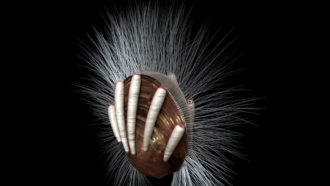 Fossils
FossilsTube-dwelling sea creatures may be oldest known parasites
A fossil bed of clam-like animals from a half-billion years ago is covered in tube-dwelling organisms. These suggest the tube dwellers were parasites, scientists now report.
-
 Health & Medicine
Health & MedicineAh-choo! Healthy sneezes, coughs sound just like sick ones to us
Think you can tell a sick cough from a healthy one? Think again. New research finds the human ear isn’t sensitive enough to tell the difference.
-
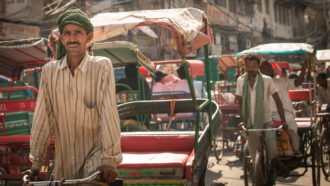
Deadly heat: Expected by century’s end, it’s here already
Instances of hot and humid conditions that threaten human lives are on the rise.
-
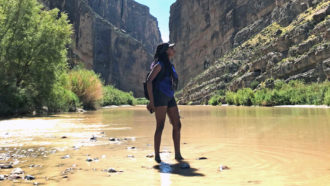 Science & Society
Science & Society#BlackBirdersWeek seeks to open the outdoors for everyone
The social media campaign #BlackBirdersWeek hopes to show the world the many black birders and nature lovers of color.
-
 Science & Society
Science & SocietyCOVID-19: When will it be safe to go out again?
No one yet knows when social distancing can end. Experts explain we need 'herd immunity,' which won't be easy and may come at a horrific cost.
-
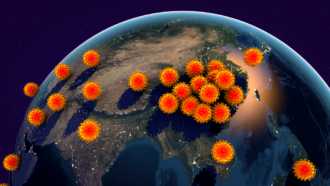 Health & Medicine
Health & MedicineWHO calls COVID-19 a global pandemic
The United Nations’ World Health Organization has finally called COVID-19 a global pandemic. Here’s why.
-
 Health & Medicine
Health & MedicineThe many challenges of corralling a coronavirus outbreak
The Chinese government has quarantined millions of people in hopes of limiting spread of a new coronavirus. But no one yet knows how much this will help.
-
 Health & Medicine
Health & MedicineSerious virus emerges in China and is spreading globally
A new viral infection emerged in December 2019 among people in Wuhan, China. The mystery illness has already killed at least 17 people and sickened many hundreds.
-
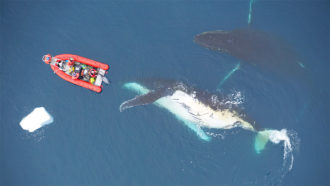 Life
LifeWhy some whales become giants and others are only big
Being big helps whales access more food. But just how big a whale can get is influenced by whether it hunts or filter-feeds.
-
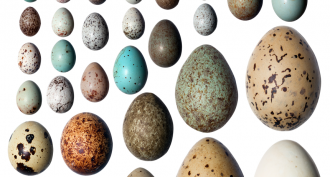 Animals
AnimalsWhy are bird eggs in cold climates darker colored?
A global survey of bird egg color has revealed a simple trend: the colder the climate, the darker the egg.
-
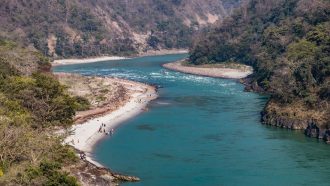 Ecosystems
EcosystemsGroundwater pumping is draining rivers and streams worldwide
Excessive groundwater use could push more than half of the regions that depend on water pumped up from underground aquifers past an environmental tipping point by 2050. That could threaten aquatic ecosystems around the world.
-
 Chemistry
Chemistry2019 Nobel Prize in chemistry goes for pioneering lithium-ion batteries
Today’s lithium-ion batteries power everything from smartphones to computers. Three scientists who pioneered those batteries just got the 2019 Nobel Prize in chemistry.